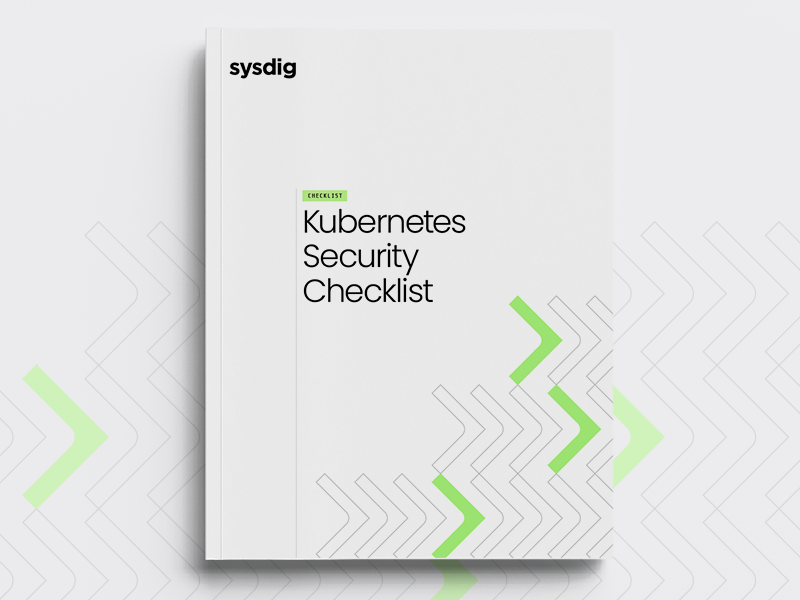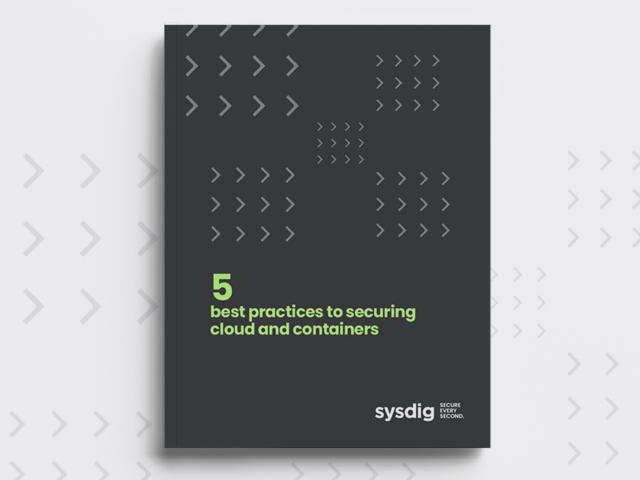13 alternatives to vanilla Kubernetes for container orchestration
While Kubernetes (K8s) is, effectively, the industry standard for containerized applications, there are good reasons to seek alternatives: you may be looking for an application orchestration platform that’s simpler to manage and less resource intensive, that isn’t restricted to applications that run in Docker, or that is more tightly integrated with your cloud platform.
This guide lists the most popular software that can act as an alternative to Kubernetes for container orchestration, explaining the benefits and use cases of each. It also includes container as a service (CaaS) and platform as a service (PaaS) platforms that can deploy and manage containerized applications.
What is Kubernetes?
Kubernetes (abbreviated to K8s) is an open source software platform for managing the deployment of applications that are containerized using Docker.
K8s allows you to deploy and scale Docker applications, and is a key component for high availability applications as it allows for the automatic restarting and upgrading of applications in a staged manner. K8s also allows you to auto-scale to meet unexpected demand.
Kubernetes Security Checklist
5 steps to securing Kubernetes
Open source Kubernetes alternatives
“Vanilla Kubernetes” or open source Kubernetes, describes a Kubernetes setup that is as basic as it gets — it has the main components to run Kubernetes, but not much else.
Below is a list of the most popular open source alternatives to vanilla Kubernetes (including tools that extend or are based on Kubernetes), including what they are, their use cases, as well as their advantages and disadvantages. Note that even when self-hosting or self-managing your own Kubernetes platform, you should take adequate measures to secure it.
#1. RedHat OpenShift
RedHat OpenShift is an enterprise-grade container orchestration platform built on Kubernetes. It’s based on the open source OKD, and can be deployed on-premises or in the cloud (and as a managed Kubernetes service, as discussed below).
- Advantages: Enterprise support, CI/CD integration, support for hybrid-cloud and multi-cloud.
- Disadvantages: Complex configuration with a steep learning curve.
#2. Docker Swarm
Contrary to popular opinion, Docker Swarm is not dead. Mirantis, the parent company of Docker Inc. uses the internals of swarm in their managed Kubernetes offering. And the Open Container Initiative (OCIO artifacts are still maintained. Swarmkit, for example, is still used as part of the Moby project, which is fed to Docker’s upstream project. Swarm serves as a simple alternative container orchestration technology provided by Docker. But since Kubernetes was accepted as the de-facto standard for container orchestration in the CNCF, these projects have very much evolved into alternative approaches to a managed Kubernetes experience.
- Advantages: Simple to set up and manage, low resource usage.
- Disadvantages: Too simple for many use cases, limited scalability.
#3. Rancher
Rancher is an open source Kubernetes management platform that covers both hybrid-cloud and multi-cloud environments. It provides a streamlined interface for complex Kubernetes deployments.
- Advantages: Self hosted, easy to use, supports multiple Kubernetes variants (including K3s), multi-cluster support.
- Disadvantages: Requires Kubernetes expertise for complex configurations.
#4. Nomad
Nomad by HashiCorp is a lightweight orchestration platform that works with both containerized applications and standalone applications. It supports hybrid workloads running including containers, virtual machines, and bare-metal.
- Advantages: Simple to use, support for a variety of workloads, integration with HashiCorp products such as Vault and Consul.
- Disadvantages: Less suitable for very large scale environments, less community support than Kubernetes-based platforms.
#5. Apache Mesos/Marathon
Apache Mesos is an open source distributed computing platform that lets you cluster resources for use with containerized and standalone applications. Marathon provides container orchestration built on top of Mesos. It is used to host and orchestrate large scale deployments including the hosting of Twitter (currently X).
- Advantages: High scalability, support for a variety of containerized and non-containerized workloads.
- Disadvantages: Very complex to set up and manage, less community support than Kubernetes-based solutions.
#6. Titus
Titus is the open source container orchestration platform developed and used by Netflix. It is optimized for use with AWS and large-scale deployments.
- Advantages: AWS integration, security and compliance features, optimization for large-scale deployments.
- Disadvantages: Complex setup and management, may not be practical to use outside of AWS.
Kubernetes alternatives: managed Kubernetes services
Managed Kubernetes services such as AWS EKS, Google GKE, and Microsoft AKS offer managed Docker container orchestration for their public cloud environments, so that you do not have to host, deploy, and maintain this infrastructure yourself.
#7. AWS EKS
Elastic Kubernetes Service (EKS) is the managed Kubernetes service provided by AWS.
- Advantages: Integration with AWS services like IAM and CloudWatch, high availability, support for AWS Fargate (discussed below).
- Disadvantages: Complex to configure, can become expensive based on usage.
#8. Azure AKS
Azure Kubernetes Service (AKS) provides managed Kubernetes platform for Microsoft’s Azure cloud services.
- Advantages: Integration with Azure services like Azure Active Directory, support for Windows containers, cost-effective.
- Disadvantages: Tailored towards Azure which may limit multi-cloud deployment options.
#9. Google GKE
Google Kubernetes Engine (GKE) is a part of Google Cloud and integrates with its suite of cloud computing tools.
- Advantages: Support for multiple regions, strong security, developed by the original Kubernetes team.
- Disadvantages: Can be expensive for large workloads.
OpenShift is also available as a managed Kubernetes service, if you do not wish to host it yourself.
When using managed Kubernetes services, security is a joint responsibility between you and your cloud provider. You must still implement DevSecOps best practices by securing your supply chain, monitoring for runtime threats, and performing forensics and incident response.
Kubernetes competitors: CaaS and PaaS platforms
Container as a service (CaaS) lets you deploy and manage containerized applications on managed infrastructure. This takes away most of the setup and maintenance tasks typically required of other Kubernetes competitors, while still giving you tools for managing container deployment and orchestration.
Platform as a service (PaaS) takes this further, often fully abstracting all interactions with containers, letting developers simply publish their code to an app platform that takes care of all management, maintenance, scaling, and other operational duties.
#10. AWS Fargate (CaaS)
AWS Fargate is a serverless platform for containers that lets you deploy applications on the AWS cloud platform without having to provision or manage any infrastructure.
- Advantages: Integration with other AWS services, scalability, pay for what you use.
- Disadvantages: No control over your infrastructure, vendor lock-in.
#11. Heroku (PaaS)
Heroku is a fully managed application platform that lets you deploy applications through Git-based workflows. It is popular with startups and for small web apps.
- Advantages: Ease of use, scalability, large marketplace of deployable ‘add-on’ apps like databases, caches, etc.
- Disadvantages: High costs for large applications, limited control, may be too simple for some use cases.
#12. VMWare Tanzu (CaaS/PaaS)
VMWare Tanzu is a site of tools for running containerized applications in enterprise environments. It extends Kubernetes with PaaS and CaaS features.
- Advantages: Strong enterprise features and support, VMWare cloud management tools integration, multi-cloud support.
- Disadvantages: Complex, expensive.
#13. Qovery (CaaS)
Qovery is a PaaS-like DevOps automation platform that lets you deploy containerized apps to AWS, Google Cloud, and Microsoft Azure without having to become an expert in each platform’s specific Kubernetes implementation.
- Advantages: Ease of use, simplified Kubernetes, multi-cloud support, Git-based deployment.
- Disadvantages: Overkill for smaller or less complex deployments.
Securing your containerized workloads
Securing native cloud workloads presents new challenges to traditional cybersecurity: always online infrastructure in the cloud lacks a well-defined perimeter, runs on shared hardware, and can have poor visibility (especially when securing containers that are being spun up and terminated rapidly). Traditional cybersecurity tools are insufficient for identifying and addressing fast moving and complex attacks that target this environment. To learn more, check out our white paper: 5 steps to securing Kubernetes.
You can learn more about how enterprises are addressing cloud security in our Sysdig 2024 Cloud‑Native Security and Usage Report, and find out how Sysdig delivers value for container adoption in the cloud.
FAQs
Docker Swarm, K3s, and Nomad are lightweight alternatives to Kubernetes for Docker container orchestration.
Kubernetes alternatives provide different features that focus on simplicity, lower resource usage, and the ability to orchestrate standalone applications and virtual machines, rather than just Docker containers.
You need to evaluate your requirements and choose the one that is best for your use case. Popular options include OpenShift, Nomad, K3s, and Docker Swarm.
Nomad and Apache Mesos provide orchestration for both containerized and non-containerized applications including virtual machines and standalone applications.
OpenShift, Qovery, and Rancher are Kubernetes alternatives with management and governance features for hybrid-cloud and multi-cloud deployments.
More lightweight and simpler Kubernetes competitors like Docker Swarm, K3s, can be more cost-effective due to reduced resource usage, as well as lowered maintenance requirements and operational costs.



